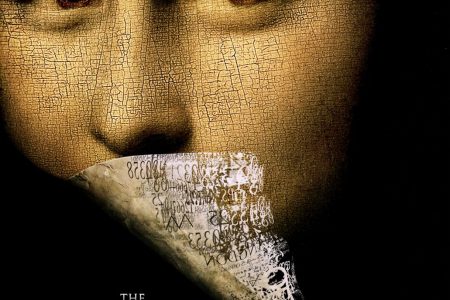I felt a little sorry for Good Night, And Good Luck at the BAFTAs. It got loaded with big award nominations, yet left empty-handed. It seemed like a worthwhile film that wouldn’t get the respect it deserved. It didn’t make me see the film; I had made that decision already. Fortunately, it stands up on its own as an intelligent piece of cinema in an age of blockbusters, franchises, teen-friendly pap and inoffensive, bland cinema.
GNAGL tells the true story or Edward R. Murrow, a newscaster in the US on CBS, and his programmes that spoke out against the witch-hunting of renowned anti-communist senator, Joseph McCarthy. Appalled by the paranoia and the ruining of lives by his accusations, Murrow and his team investigate his tactics and present their findings on television, in the face of sponsorship withdrawal, internal politics and the attacks of McCarthy himself.
The story is told in black and white, to achieve a sense of period more easily, and using a looseness of camera work in the television studios and offices to suggest the documentary style without having handheld cameras, which would seem out of place in the 1950s. The only time the camera really sits still is when it focussing on Murrow presenting the television programmes, reflecting the period but also letting the audience absorb what he has to say and the power of the words. In this, Strathairn gives a powerful performance of a man with a conscience and the power to do something about it. He is gripping to watch and deserving of the nomination. His fellow actors support him well, giving a real ensemble feel to the piece, even down to roles that don’t extend to more than a few scenes.
The star of the show, in a sense, then is Clooney, directing, acting, co-writing, producing – all this and he’s handsome too? Talented bastard. You have to respect Clooney and his desire to make worthwhile films, rather than make the easy buck. This is a thoughtful drama, examining a piece of history that has obvious parallels to today in Bush’s labelling of enemies as terrorists as an excuse for not getting his way, as well as looking at the strange relationship between the world of television news and advertising (there are several ads, which I assumed were genuine ads from the time, that are hilarious to look at with a modern eye, including a direct to camera appeal from a serious gentleman telling you to smoke a certain brand of cigarette. Not that you need to be reminded about cigarettes – everyone smokes, especially Murrow, who chain-smokes throughout his show. Can you imagine today’s newsreporters smoking on camera?). Cinema is meant to be entertaining, but it can also inform at the same time, which this film does; after the film, I wanted to read more about the time and the witch-hunts and the junior senator from Wisconsin. That is the sign of film that sticks with you and makes you think.
The film isn’t completely perfect, with the innately episodic nature of the storytelling, the lack of character development for supporting players, and the feel that we’re not getting the whole story. However, these are minor flaws in an excellently acted and excellently crafted piece of cinema that mainstream Hollywood simply doesn’t do enough.
Rating: DAVE




